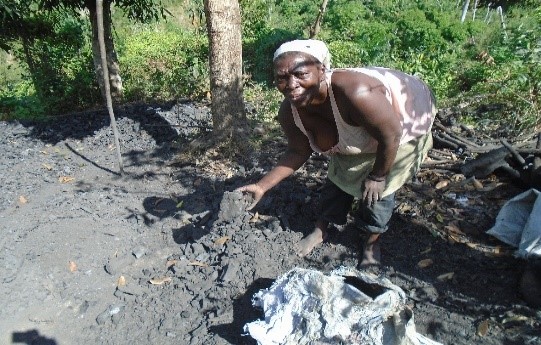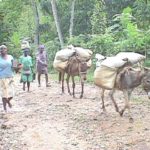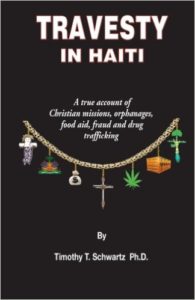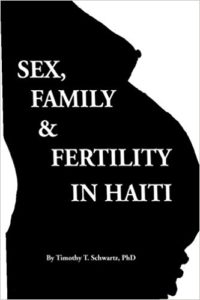A common myth often repeated among development experts working in Haiti is that the peasants cut their fruit trees for charcoal (see MIF 2010; USAID/WINNER 2015; TNS 2014; Davenport 2000:1). And they do. But what’s mythical is the implication that they are indiscriminately felling healthy and productive fruit trees. After seven years of researching factors that drive Haitian farmers to cut trees, Andrew Tarter, PhD, concludes that,
Rural Haitians are extremely reluctant to cut their fruit trees. … Cutting a productive tree with edible fruit is a last resort, and other trees will be targeted for charcoal production long before machetes touch the branches and trunks of fruit trees.
The exception to this general rule is that peasants will cut fruit trees that are becoming unproductive or producing a fruit of low quality. Moreover, Tarter (ibid) notes–and we found partical1,096 females and 1,214 males support for this observation during the course of the focus groups– that the recent trend is to replace fallen mango, cacao and coffee trees with trees that produce starchy fruit, such as breadfruit, plantains, and avocados. The reason is, quite simply, market forces. To be exact,
a) the export market for coffee and Cacao is unprofitable
b) the local market reigns
c) the local market wants starchy staple foods, things you can eat for dinner
d) if the producer cannot sell the fruit, they can eat it for dinner
WORKS CITED
Andrew Tarter, PhD anthropology, author of “Trees in Vodou: An Arbori-cultural Exploration” (article) and book manuscript entitled, “Adaptive Arboreal Practices: Haitian Farmer Responses to On-going Deforestation
Davenport, Thomas L, 2000 Rapid product assessment of the mango commodity sector for the Haitian Hillside Agricultural Program (HAP) In THE USAID-FUNDED HAITI HILLSIDE AGRICULTURAL PROGRAM (PEM 2013)
IDB/MIF 2010 Mango As An Opportunity For Long-Term Economic Growth Document Of The Inter-American Development Bank Multilateral Investment Fund (Ha-M1034). Donors Memorandum
TNS/TechnoServe 2014 CASE STUDY. Unlocking Credit for Haiti’s Smallholder Mango Producers
USAID/WINNER 2015a http://www.winnerhaiti.com/index.php/en/mirebalais-and-saut-d-eau








